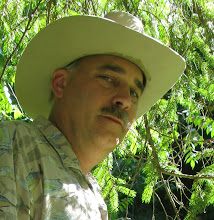1 thing associations can learn from Facebook
Today Facebook asked me “What’s on your mind?” That question seems a bit confrontational. Why should I tell you?
OK, what’s on my mind is the topic of associations and online ad-hoc communities. I’m referring to online social media spaces that allow anyone to create their own community. Take Facebook Will Be Forced to Shutdown in 7 Days! Join and Save it! For example. An ad-hoc community on Facebook with 1,280,653 members See All to protest the new Facebook interface. By my count this is an ad-hoc group that has formed in less than a week to now comprise almost 1% of Facebook users. It will be interesting to see what happens next, especially in light of their recent change in TOS debacle. The TOS change spawned a similar user backlash and forced a clarification and return to the prior terms which said you owned your content. Facebook’s change to the TOS said Facebook had rights to your content forever, for whatever purpose, and even after you left Facebook. This was either a clumsily executed naked rights grab or the result of incompetent legal staff. We’ll never know which.
The interesting point here for associations is the ad-hoc community bit. Associations are fundamentally about community. Most associations offer some type of online community (community of practice, listserv, or more advanced social media space). However, in my experience, very few allow members the opportunity to create their own ad-hoc communities or interest groups within the association online environment. They typically offer a few communities based on membership interest areas. Creation of new communities is locked down and at the association’s discretion. This flows from the old association mother-ship model of top-down, controlled information flow.
What if an association allowed members to create their own ad-hoc communities? I posit:
* The number of communities would increase dramatically.
* Member to member connections would strengthen.
* The association would get advance info on odd topics of interest and trends. The edges are where all the interesting stuff happens.
* Communities of dissent would form.
That would't be all bad.
OK, what’s on my mind is the topic of associations and online ad-hoc communities. I’m referring to online social media spaces that allow anyone to create their own community. Take Facebook Will Be Forced to Shutdown in 7 Days! Join and Save it! For example. An ad-hoc community on Facebook with 1,280,653 members See All to protest the new Facebook interface. By my count this is an ad-hoc group that has formed in less than a week to now comprise almost 1% of Facebook users. It will be interesting to see what happens next, especially in light of their recent change in TOS debacle. The TOS change spawned a similar user backlash and forced a clarification and return to the prior terms which said you owned your content. Facebook’s change to the TOS said Facebook had rights to your content forever, for whatever purpose, and even after you left Facebook. This was either a clumsily executed naked rights grab or the result of incompetent legal staff. We’ll never know which.
The interesting point here for associations is the ad-hoc community bit. Associations are fundamentally about community. Most associations offer some type of online community (community of practice, listserv, or more advanced social media space). However, in my experience, very few allow members the opportunity to create their own ad-hoc communities or interest groups within the association online environment. They typically offer a few communities based on membership interest areas. Creation of new communities is locked down and at the association’s discretion. This flows from the old association mother-ship model of top-down, controlled information flow.
What if an association allowed members to create their own ad-hoc communities? I posit:
* The number of communities would increase dramatically.
* Member to member connections would strengthen.
* The association would get advance info on odd topics of interest and trends. The edges are where all the interesting stuff happens.
* Communities of dissent would form.
That would't be all bad.
Labels: ad-hoc, associations, communities, facebook, social media


0 Comments:
Post a Comment
Subscribe to Post Comments [Atom]
<< Home